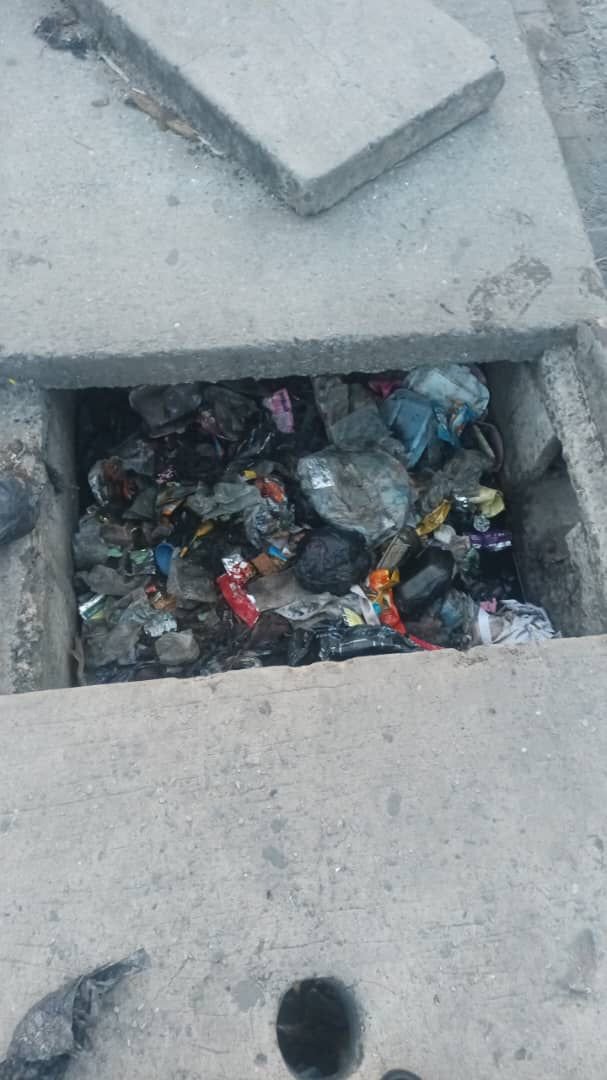The proliferation of plastic waste in Abuja, Nigeria’s capital city, poses a significant threat to both the environment and human health. The improper disposal of plastic materials has led to severe consequences, including environmental pollution, airborne diseases, water contamination, climate change, and various environmental hazards. In this report, Ogbodo Ozioma Favour delves into the impacts of plastic waste in Abuja, gathers insights from residents and experts, and explores potential solutions to this growing problem.
Abuja, known for its beautiful landscapes and vibrant city life, has unfortunately witnessed a surge in plastic waste over the years. Plastic bags, bottles, and other single-use items can be found littering the streets, clogging drainage systems, and polluting water bodies. These non-biodegradable materials take hundreds of years to decompose, causing long-lasting harm to the environment.
Residents of Abuja have expressed deep concerns about the increasing amount of plastic waste in their city. “I am deeply concerned about the amount of plastic waste I see every day on the streets. It’s not just an eyesore, but it also poses a serious threat to our environment and public health,” says Uti Umoh, a resident.

Miss Umoh who is also a regular shopper at Shop Rite suggested switching to paper bags as an alternative, despite acknowledging that they may be more expensive and less durable. She points out that paper bags are commonly used in grocery shops abroad.
Another resident, Ajibola Ibukun argued in favour of plastic bags, citing their protective and durable nature, especially for certain uses such as selling pure water. “I see nothing wrong with using plastic bags, they are more protective and durable than paper bags,” she said. “Government policies should not entirely ban the usage of plastic bags.”

Plastic pollution has become a dire issue globally, as highlighted by a United Nations report on plastic waste. Over 430 million tonnes of plastic are produced each year, with two-thirds of it becoming short-lived waste. The report emphasizes the harmful impact of microplastics, which seep into oceans, causing significant damage to aquatic life and human health.
In Nigeria, the excessive use of plastic, particularly single-use plastic, leads to environmental pollution, airborne diseases, water contamination, climate change, and various environmental hazards. Nigeria itself uses over 1.5 million metric tons of plastic annually, making it one of the highest plastic consumers in Africa, according to the UN Resident and Humanitarian Coordinator, Mathias Schmale.
The health implications of plastic pollution cannot be overlooked. Dr Dangana Jonathan, a public health expert, warned about the health risks associated with plastic pollution. “Plastic waste can leach harmful chemicals into the soil and water, leading to contamination of food and drinking water.

“When plastic waste accumulates in the environment, it can release toxic substances like bisphenol A (BPA) and phthalates. These chemicals have been linked to various health issues, including hormonal imbalances, lung diseases, reproductive disorders, and even certain types of cancer.”
He said the harmful effects are not limited to humans but extend to oceans and terrestrial wildlife, leading to the depletion of marine and land ecosystems.
Environmental expert, Mr. Igwebuike Ijeoma, emphasized that plastic pollution not only harms wildlife and marine ecosystems but also contributes to climate change. “The production and incineration of plastic release greenhouse gases, exacerbating the global environmental crisis.”
He called for public awareness and enlightenment programs to educate the populace about the advantages of biodegradable bags over their plastic counterparts and advocated for the banning of single-use plastics in the country. Stating, “Rwanda’s successful ban on plastic since 2008 serves as an exemplary model that Nigeria can learn from, where plastic bags are strictly prohibited.”
According to a recent report by the World Bank, Nigeria generates over 32 million tons of plastic waste annually, with only 20% being collected for recycling. The remaining plastic waste ends up in landfills, water bodies, and the natural environment, causing significant harm.
However, Efforts are being made by both individuals and organizations to address this pressing issue. One such initiative is the promotion of recycling and proper waste management practices.
The Abuja Environmental Protection Board (AEPB) has implemented measures to encourage recycling and reduce plastic waste. They have established recycling centres and organised awareness campaigns to educate residents about the importance of waste segregation and recycling. These efforts aim to divert plastic waste from landfills and promote a circular economy where plastics are reused or recycled
Mr Dazeth Ventures, a recycling business owner, in an interview with African Health Report, AHR, emphasised the importance of recycling in addressing the plastic pollution problem.

He said: “Recycling is key to addressing the plastic pollution problem. By promoting recycling initiatives and creating a circular economy for plastics, we can reduce the amount of plastic waste ending up in landfills and the environment.”
“We need to change our mindset and see plastic waste as a valuable resource rather than trash. Recycling not only reduces environmental pollution but also creates employment opportunities and contributes to a more sustainable future.”
Notwithstanding, individuals and businesses are embracing alternative eco-friendly options to reduce plastic consumption. Many grocery stores in Abuja now offer reusable bags, encouraging customers to shift away from single-use plastic bags. Restaurants and cafes are also adopting biodegradable packaging materials to minimize plastic waste.
A female sales representative at Cold Stone shop (name withheld), discussed their decision to use biodegradable packaging.

“As a business firm, even though these bags are customized, we feel responsible for the waste we generate,” she said. “By using biodegradable materials which is the standard, we can significantly reduce our environmental footprint and inspire others to do the same.”
As the voices of concerned citizens, experts, and advocates grow louder, it is time for policymakers, businesses, and communities to come together to tackle plastic pollution and pave the way for a cleaner, healthier, and more sustainable future for Nigeria. It is imperative to address the plastic waste crisis to protect the environment, safeguard public health, and ensure a sustainable future for generations to come.



